If there is one thing we all have in common, it's the fact that the New Year starts with feeling spent. All the sparkle and warmth of the holiday season is gone, and we're left with a brittle and crumbling tree, lawn ornaments that look sad and trashy, and piles of dirty snow. And typically many, many regrettable financial decisions that we now have to pay for. Thanks, credit cards, for allowing me to give so much "fancy" peppermint bark to my friends and family! If this feels like you, then read on. About ten years ago I created an annual ritual in which I start the year off by reading a couple books on financial planning, and then I implement a few suggested changes. Some of these have had an enormous cumulative impact; others have created long-term peace of mind. For example, one year, the "only" thing I did was purchase life insurance for me and my husband. Now we have a child, and we know if something happens to us, our son will be comfortable and taken care of. If this is new territory for you, then everything feels like really complicated grown-up land. That's why you should measure your success by doing anything. I'm serious! Fortunately for you, there are many authors who understand just how scary money and personal finance are, and have created guides that are actually enjoyable to read. Here are some of my recommendations.
![]() 1. Anything Post-2008 by Suze Orman
1. Anything Post-2008 by Suze Orman
That's right — Ms. Orange Tan gives great financial advice. You know — you've watched her show! She does a great job of tailoring her writing to her audience, which is a primary failing in some financial writers. You don't want to feel like you've missed the boat in saving for the future or putting your financial house in order. And really, as long as you're breathing, there's something you can do to make things better. You will definitely be able to find yourself in one of her books. I really like Orman's advice on big-ticket purchases. I especially recommend Women & Money: Owning the Power to Control Your Destiny and The Money Class: How to Stand in Your Truth and Create the Future You Deserve. I am still taking Suze's advice and I'll read anything she publishes.
Buy Suze Orman's books from Amazon.com
![]() 2. 'On My Own Two Feet: A Modern Girl's Guide to Personal Finance' by Manisha Thakor and Sharon Kedar
2. 'On My Own Two Feet: A Modern Girl's Guide to Personal Finance' by Manisha Thakor and Sharon Kedar
I love Manisha Thakor. I've heard her speak in person more than once, and I can't recommend her enough. I see Thakor as Orman's successor. Thakor is like your knowledgeable friend teaching you about index funds, while Orman is more like the hardened businesswoman who had to wear horrible shoulder padded suits in the '80's in order to give it to you straight today. They cover similar topics, which include short and long-term planning for a solid financial future. Thakor has built her career around helping women get a handle on their finances, and she makes a strong case for women to not rely on men to manage their money, especially as our collective earning power increases.
Buy On My Own Two Feet from Amazon.com
![]() 3. 'Pogue's Basics: Money' by David Pogue
3. 'Pogue's Basics: Money' by David Pogue
A different kind of financial book, Pogue's Basics: Money is all about helping you stretch your existing dollars. It was published at the end of 2016, and will probably be relevant for a short time, so read it now! Pogue includes information about where to get discounted gift cards, various freebies, and rational purchasing. I found the section about when to shop at the Gap suite of stores (Banana Republic, Old Navy, etc.) really illuminating. Pogue isn't afraid to call you an idiot, so if you can handle his gentle abuse, you'll definitely learn something.
Buy Pogue's Basics from Amazon.com
![]() 4. 'The Smart Cookies' Guide to Making More Dough and Getting Out of Debt: How Five Young Women Got Smart, Formed a Money Group, and Took Control of Their Finances' by Baxter, Self, Dunsworth, Gunn, Hanna, and Barrett
4. 'The Smart Cookies' Guide to Making More Dough and Getting Out of Debt: How Five Young Women Got Smart, Formed a Money Group, and Took Control of Their Finances' by Baxter, Self, Dunsworth, Gunn, Hanna, and Barrett
OK, I know, the title. It sounds like it was made for Pinterest before Pinterest was even a thing. I include this one because it was the first financial planning book I picked up (what does that say about me?), and it describes a culture of excessive spending on credit that most people have indulged in at some point in their lives, especially in their 20's. The authors make their debt-ridden lives sound a whole lot more fashionable than mine ever was, but the result was the same: no savings, mountains of debt, and no plan. The authors were all in high earning positions, so scaling back wasn't as painful for them as it is for others. Still, I learned monthly budgeting from this book, and if that is the only takeaway, it is priceless. Following the success of their publication, the Smart Cookies created a business around personal finance. They regularly offer free webinars and tips on smart spending at smartcookies.com.
Buy The Smart Cookies' Guide to Making More Dough and Getting Out of Debt from Amazon.com
![]() 5. 'The Millionaire Next Door: The Surprising Secrets of America's Wealthy' by Thomas Stanley and William Danko
5. 'The Millionaire Next Door: The Surprising Secrets of America's Wealthy' by Thomas Stanley and William Danko
This book is still flying off bookshelves almost 20 years after it's original publication. The most recent edition was published in 2010, and while that may sound dated, the essentials of this book are timeless. Not surprisingly, some of the secrets involve spending less than you earn and saving your money. Thanks Dad! The authors do dive into some interesting social topics, like the financial relationship between adult children and their parents. They also focus on spending habits over time and how they help or hinder one's ability to save. My big takeaway was the value in keeping your car as long as possible once you've paid it off. Never again will I be ashamed of driving an old car!
Buy The Millionaire Next Door from Amazon.com
![]() 6. 'All Your Worth: The Ultimate Lifetime Money Plan' by Elizabeth Warren and Amelia Warren Tyagi
6. 'All Your Worth: The Ultimate Lifetime Money Plan' by Elizabeth Warren and Amelia Warren Tyagi
That's right — before she became the hard-edged senator many of us hope will someday run for President, Elizabeth Warren was the canary in the financial market coal mine. Amazingly, this book, published in 2006, is completely relevant today because it exists outside of the whims of the markets. The authors propose a 3-component financial model: 50% for must-haves, 30% for wants, and 20% for savings and paying off debt. They dive into how to accomplish this balance, which ultimately leads to financial security. They offer great advice on how to approach big ticket items and where to focus your financial energy.
Buy All Your Worth from Amazon.com
![]() 7. '168 Hours: You Have More Time Than You Think' by Laura Vanderkam
7. '168 Hours: You Have More Time Than You Think' by Laura Vanderkam
If, at the conclusion of your financial reading, the only answer is to generate more income, this book will help you find the time to do it. Vanderkam has built her career on studying successful people and looking at their habits and how they use their time. She offers realistic strategies on how to structure your life so you can accomplish your goals, even when you feel like you have no time. Vanderkam's newest book, I Know How She Does It: How Successful Women Make the Most of Their Time, is at the top of my reading list.
All right friends, that is more than enough to get you started! Try some of these out, make a few changes, and see your lives improve. You're welcome!

About the author
Stephanie Bonjack is an academic librarian and musician who lives and works on the Colorado Front Range. She teaches the relentless pursuit of information, and illuminates the path to discovery. She has presented at national and international library conferences, and is especially interested in how libraries evolve to serve the needs of 21st century patrons.
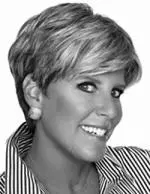 1. Anything Post-2008 by Suze Orman
1. Anything Post-2008 by Suze Orman
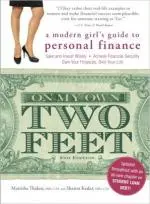 2. 'On My Own Two Feet: A Modern Girl's Guide to Personal Finance' by Manisha Thakor and Sharon Kedar
2. 'On My Own Two Feet: A Modern Girl's Guide to Personal Finance' by Manisha Thakor and Sharon Kedar
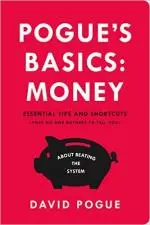 3. 'Pogue's Basics: Money' by David Pogue
3. 'Pogue's Basics: Money' by David Pogue
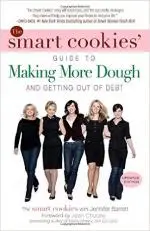 4. 'The Smart Cookies' Guide to Making More Dough and Getting Out of Debt: How Five Young Women Got Smart, Formed a Money Group, and Took Control of Their Finances' by Baxter, Self, Dunsworth, Gunn, Hanna, and Barrett
4. 'The Smart Cookies' Guide to Making More Dough and Getting Out of Debt: How Five Young Women Got Smart, Formed a Money Group, and Took Control of Their Finances' by Baxter, Self, Dunsworth, Gunn, Hanna, and Barrett
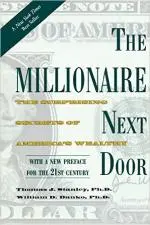 5. 'The Millionaire Next Door: The Surprising Secrets of America's Wealthy' by Thomas Stanley and William Danko
5. 'The Millionaire Next Door: The Surprising Secrets of America's Wealthy' by Thomas Stanley and William Danko
 6. 'All Your Worth: The Ultimate Lifetime Money Plan' by Elizabeth Warren and Amelia Warren Tyagi
6. 'All Your Worth: The Ultimate Lifetime Money Plan' by Elizabeth Warren and Amelia Warren Tyagi
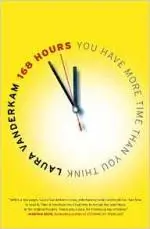 7. '168 Hours: You Have More Time Than You Think' by Laura Vanderkam
7. '168 Hours: You Have More Time Than You Think' by Laura Vanderkam








